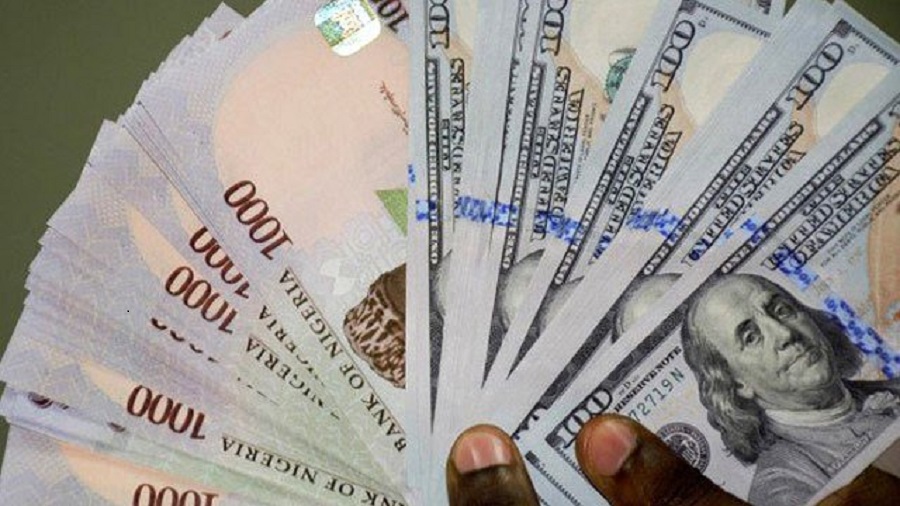
Business
Naira to Dollar Exchange Rate Hits 6 Month Low N1,625.88/ $1

Naira to Dollar Exchange Rate has Hits a Six-Month Low at N1,625.88/$1
iexclusivenews – The exchange rate between the naira and the dollar has fallen to a six-month low of N1,625.88/$1 on the official NAFEM market as of Wednesday, August 4, 2024.
This marks the lowest exchange rate since March 8, 2024, when it was recorded at N1,627.4/$1.

According to FMDQ data for the NAFEM window, the naira’s depreciation on August 4 represents a 0.89% decline from the previous day’s rate of N1,611.34/$1.
The naira traded at a high of N1,640/$1 and a low of N1,400/$1, indicating significant volatility in the foreign exchange market.
The FX turnover for the day stood at $205.76 million, a marginal drop of 1.84% compared to the previous day’s $209.61 million.

Table of Contents
Naira to Dollar Rate Reflects Troubling Trend
The drop in exchange rates indicates a troubling trend for the Nigerian currency, which has been under continuous pressure.
This crash occurred amid a reported hike in petrol prices across the country, which may add to the plights of businesses and ordinary Nigerians, further worsening inflation.
Earlier reports indicated that the Nigerian official foreign exchange (FX) market experienced a marked decline in turnover in August, despite the initial Retail Dutch Auction conducted by the Central Bank of Nigeria (CBN).
Data obtained from the FMDQ by iexclusivenews, reveals a significant reduction of $1.08 billion, with total turnover falling to $3.25 billion from $4.34 billion recorded in July 2024.
This decline of 25% highlights the ongoing challenges faced by the official FX market in terms of liquidity and stability.
Market Volatility and Naira to Dollar Exchange Rate
The consistent decline in FX turnover from July to August, alongside significant daily fluctuations, highlights the growing strain on the official market.
The reduced turnover suggests a tightening of dollar liquidity, which could exert additional downward pressure on the naira.
With the market grappling with these challenges, it may become increasingly difficult for the CBN to maintain the naira’s value, potentially leading to further depreciation if these conditions persist.
A report by Bloomberg in June 2024 noted that the naira emerged as the worst-performing currency in the world in the first half of 2024.
This was three days after Yemi Cardoso, the governor of the Central Bank of Nigeria (CBN), expressed satisfaction with how the apex bank had managed the currency crisis in the past few months.
Regarding whether the naira has reached its peak value or if further appreciation is expected, the CBN chief stated that it depends on “a host of different issues,” implying that the fiscal side plays a significant role in determining the value of the currency.
Cardoso, however, added that it is a work in progress as they will continue to implement certain macroeconomic fundamentals that will positively impact the market.
Demand pressure, insufficient dollar liquidity, and market volatility have hindered efforts by the CBN to strengthen the currency.
Besides the naira, Egypt’s pound and Ghana’s cedi were the world’s other worst performers in the first six months of the year.




























